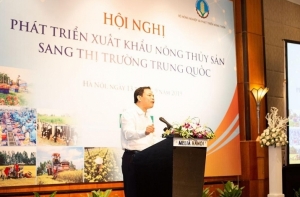Concerns remain over legal validity and other issues of e-contracts
The legal framework for contracts and e-contracts is comprehensive and synchronous. Vietnam promulgated the Law on Electronic Transactions No.51/2005/QH11 in 2005 based on the model law of the United Nations Commission on International Trade Law on e-commerce in 1996.
On that basis, the government has issued guiding legal documents, notably Decree No.130/2018/ND-CP detailing the implementation of the Law on Electronic Transactions 2005 on digital signatures and digital signature authentication services and Decree No.52/2013/ND-CP on e-commerce.
 |
| Luu Xuan Vinh, founder and managing partner at Asia Legal |
Legal documents guiding the Law on Electronic Transactions 2005 in specialised fields such as accounting, finance, banking, and insurance have also been promulgated, which ensure the legal validity of e-contracts as well as the safety and integrity of the data in them.
The validity relies on the criteria prescribed in the Civil Code 2015, including that parties in the transaction must have legal personality or legal capacity in conformity with such transaction; must act voluntarily; and the form of the contract must be in accordance with the provisions of the law, without relying entirely on how the contract is entered into. In other words, the engagement of the contract under the form of a written, oral, or electronic means is not a decisive factor affecting the legal validity of such a contract.
In addition, many enterprises have been concerned over the signing and executing of e-contracts as it is not so familiar to them. However, electronic transactions occur every minute and every day in our life. Transactions on e-commerce platforms such as Lazada, Shopee, Tiki, and Grab are typical examples of electronic transactions.
Confidentiality is another concern for enterprises as information of electronic transactions is not only stored on the enterprise’s system but also backed up on through digital signature service providers for maintenance and technical troubleshooting.
The current law does not clearly stipulate the obligations of the digital signature authentication service provider to secure confidentiality, hence, the enterprises should be aware of this matter and must include, in the service contract, the confidentiality obligation of the digital signature authentication service provider.
Also, a question that many enterprises raise is how to prove the legal validity of the e-contract as the original version when dealing with a third party such as a bank or state authorities. In practice, Article 9 of Decree 52 provides legal basics for this matter.
Accordingly, an e-document in a commercial transaction has legal validity as the original if it fully meets the following conditions: (i) there is a reliable assurance of the integrity of the information contained in the e-document from the time the information is first generated in the form of the e-document; and (ii) information contained in the e-document is accessible and usable in complete form when necessary. The criterion for assessing the integrity is that the information is complete and unaltered, apart from changes in the form arising in the process of communicating, storing or displaying the e-document. One of the criteria for reliability assurance is when the electronic document is signed with the digital signature granted by a licensed digital signature authentication service provider.
Thus, when (i) the e-contract is signed with a digital signature granted by a licensed digital signature authentication service provider; (ii) information contained in the e-contract is accessible and usable in complete form when necessary, and (iii) the information in the e-contract is intact, then the e-contract shall have legal validity as the original. In reality, it is not difficult for enterprises to prove these three factors to third parties. However, whether it is accepted by third parties remains a question.
The decree amending Decree 52, expected to be officially issued in the upcoming time, will stipulate the regulations on authenticating e-contracts by a service provider which is licensed by the Ministry of Industry and Trade. It means that when the amended decree 52 comes into force, in addition to a digital signature authentication services provider, there will be one more service provider providing authentication services to e-contracts, probably for the purpose of verifying that such e-contract has content integrity, without depending on the changes of technology and technicality.
The amended decree 52 is expected to complete the legal framework for e-contracts and address the concerns of enterprises when applying them to their business activities. However, there remains a question on the need to have another authentification services provider for e-contracts. In addition, this may also incur costs for the enterprises when they must pay for both services, just to make sure that the e-contract is reliable.
 | E-commerce, e-logistics – the key to success for exporters Vietnamese exporters are urged to give priority to e-commerce and e-logistics platforms to increase opportunities to join major value chains while preventing possible loss risks amid changing global trade rules and the wide influence of Industry 4.0. |
 | E-contract rules need to address concerns Electronic contracts could further improve and speed up business activities. However, local enterprises seem hesitant as open questions remain. New amendments to the legal framework could remedy their doubts and boost the application of e-contracts in domestic business transactions. |
 | EuroStyle and Lema sign exclusive distribution contract EuroStyle, a key player of the luxury interior industry in Vietnam, became the exclusive distributor of Lema, a leading Italian home-furnishing innovator. |
What the stars mean:
★ Poor ★ ★ Promising ★★★ Good ★★★★ Very good ★★★★★ Exceptional
 Tag:
Tag:
Related Contents
Latest News
More News
- Citi economists project robust Vietnam economic growth in 2026 (February 14, 2026 | 18:00)
- Sustaining high growth must be balanced in stable manner (February 14, 2026 | 09:00)
- From 5G to 6G: how AI is shaping Vietnam’s path to digital leadership (February 13, 2026 | 10:59)
- Cooperation must align with Vietnam’s long-term ambitions (February 13, 2026 | 09:00)
- Need-to-know aspects ahead of AI law (February 13, 2026 | 08:00)
- Legalities to early operations for Vietnam’s IFC (February 11, 2026 | 12:17)
- Foreign-language trademarks gain traction in Vietnam (February 06, 2026 | 09:26)
- Offshore structuring and the Singapore holding route (February 02, 2026 | 10:39)
- Vietnam enters new development era: Russian scholar (January 25, 2026 | 10:08)
- 14th National Party Congress marks new era, expands Vietnam’s global role: Australian scholar (January 25, 2026 | 09:54)


















 Mobile Version
Mobile Version